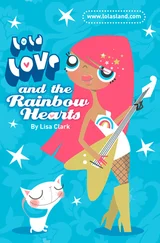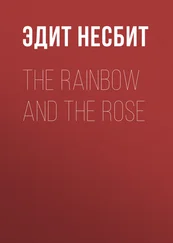All those nights of insomnia and fury, seated at the piano, trying to convey some “joy,” have led only to the ironic smiles of the men who had hired him.
His archenemy, the minister of the interior, had achieved his purpose by getting his men to break Bettinis’s collarbone, but his own clients had broken his soul.
He felt a cry in his stomach. His eyes were swollen. The drizzle was the faithful dog accompanying the beggars. He felt sorry for himself. He embraced his self-pity.
This No , which was supposed to reunite him with his creativity, was starting to be a farewell letter.
His father had taught him not to put too much hope in anything, not to have his present life depend on the eventual outcome of any enterprise. “Always think you’re going to lose.” A philosophy very different from the one practiced by his wife, Magdalena, and her friends: recommendations to improve digestion, self-help, Buddhism in daily life, Zen here, Zen there. Bad thoughts will result in bad deeds. If you think positive, happiness will come to you, wagging its little tail. He had believed in the fucking No with the same faith as in his childhood he had believed in a guardian angel. He had put his protection and anxieties in his hands. He had gone against his best judgment. He was sure that, this time, David wouldn’t defeat Goliath. Poetry’s breath like a canary wouldn’t be strong enough to beat the ogre.
Magdalena’s poetry ideas were sheer wishful thinking. The dictatorship’s heavy sea had thrown over the rocks and beaches only debris from shipwrecks. Raúl Alarcón and Strauss, his partner; Olwyn, so convinced that he could become the king of freedom; and his own dream, that rainbow coming off the sky, were all the premonition of a cataclysm rather than a hymn to victory.
He put the key in the ignition and felt that the exhaust gas was filling the interior of the car through one of the many holes in its body. The smell of Santiago was there, an unidentifiable little animal multiplying itself in the drizzle, encouraged by the lights of the cars that moved slowly during rush hour.
Spring would be coming, but not the poet’s spring. The damn spring of the radio song.
The spring of those military men who had overthrown the democratic government on a Tuesday, September 11, who now, with the plebiscite, would see the red stains magically vanish from their uniforms. Pinochet would win comfortably and would continue terrorizing the country, unharmed, dying of laughter. His generals would once again toast one another with bubbling champagne.
And people would point their fingers at him.
Like in Frost’s poem, Adrián Bettini had taken the road less traveled, the road leading to originality, but also to the abyss.
His campaign for the No and for joy didn’t interest anyone.
The minister of the interior was going to authorize broadcasting the TV ad, thanks to the harmless chorus of the Nobel Prize winner to be, Raúl Alarcón. That little waltz had watered down the explosive fuse everyone was expecting to see in those brief fifteen minutes. Naïve humor in a country that had shed so much blood trying to earn its freedom!
Harmless.
He got to the corner and, instinctively, covered his nose for a sneeze. That second was enough for his car to crash into the vehicle in front of him. It wasn’t a big deal, only one more wound on the old Fiat, one more scratch in his life, nothing compared to the huge dent in his soul.
He went from that fatalistic resignation to blind panic as saw that the vehicle he had rear-ended was a patrol van.
In a flash of lucidity, he hid the tape with the No campaign under the driver’s seat and resignedly rolled down his window.
The honks of the other drivers, impatient with this new delay, amplified through the open window. They made his nerves screech, precisely at that moment when he needed peace, good judgment, sagacity. Mettle. Good mood.
There he was, the police officer with his excess of formality, asking him for his “documents.”
He put his hand into his pocket and the invitation to the cultural event at the Argentine embassy came out along with his wallet. Perhaps the invitation would provide a rationale for softening the blow that would soon come.
Bettini handed him the invitation with the coat of arms of the trans-Andean country. After looking at it with indifference, the cop gave it back to him.
“Your documents, sir.”
“Sure, sure, Lieutenant,” Bettini said, digging inside his wallet. As he did this, he added, as if he were presenting an absurd safe-conduct, “I’m coming from a reception at the Argentine embassy. Right here. On Vicuña Mackenna. A reception hosted by the ambassador himself.”
The officer took the documents, protecting them from the rain with his left hand.
“Your name is Adrián Bettini?”
“Yes, Lieutenant. I’m coming from a reception at the Argentine embassy. The embassy of the Argentine Republic, our neighboring country.”
“Turn off the car and get out.”
“Gladly, Lieutenant. I don’t understand how this happened. It’s a regrettable accident. The wet road, probably …”
“The road is wet for everyone. Only you crashed.”
“You’re right, Officer. Probably because I was coming from a reception at the Argentine embassy—”
“Did you drink?”
Absurdly, he tried to cover up the smell of alcohol on his breath. Equally absurdly, he replied, “I don’t think so.”
“You’ll have to come with me to the police station, sir.”
Another cop detoured the traffic to the opposite side of the road and signaled Bettini to park near the sidewalk.
“This guy’s going in. Driving under the influence and damaging a vehicle of the armed forces.”
Bettini parked his car near an oriental banana tree, got out, and closed the door. He was about to put the keys in his pocket, when one of the officers grabbed his wrist.
“I’ll take the keys.”
“But …”
“But what? Are you afraid that we will steal your car?”
He wasn’t able to say but what .
There it was, the campaign for the No that was going to be broadcast in a few days, for all Chile to see. For his humiliation. For his funeral. His apocalypse.
Why say anything?
“I’m coming from a reception at the Argentine embassy …”

THE INSPECTOR DROPS MEat the principal’s office as if I were a bundle he was eager to get rid of. He leaves the office without even saying good-bye. The door remains open and I can hear him going up the stairs to the second floor.
The receptionist operates the switchboard and talks to the principal. She only says one word: “Santos.” With a gesture, she signals me to go in.
I walk into that place that holds only bad memories. I was there twice. Once, I was suspended for misbehaving, and it was the school’s highest authority who informed me, “Come back with your legal guardian.” The second time was for bad grades in chemistry.
“Sulfuric acid. Write the formula, Santos, one hundred times in your notebook.” “Water, Professor! H 2O! Give me a break, Professor Guzmán!” “I’m not expelling you only because you’re Professor Santos’s son.”
“Never again.”
“I’ll study. I promise.”
Today, the office seems even darker and colder than on those two occasions. The kerosene heater is off. The curtains look heavier. The oil portraits of the founding fathers who went to our school look older. Cold colors. A lot of black, and brown, and blue, and green.
Читать дальше












